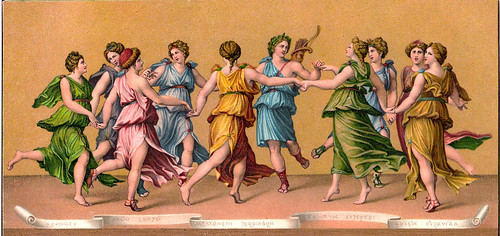by Steven Pressfield.
Have you read it?
I read it straight through last night.
(That might seem like some kind of feat, but it’s an easy read – so much white space! Interestingly, he doesn’t feel the need to fill his page. Once he’s said what he wants to say on a topic, he stops saying it.)
It’s divided into three sections:
Resistance: defining the enemy
Combating Resistance: turning pro
Beyond Resistance: the higher realm
The first section is concerned with defining the force he calls Resistance, which is the antagonistic force within each of us which tries to stop us doing what we’re supposed to be doing – for writers, writing.
This frequently takes the form of procrastination, but can also disguise itself, he says, as golf, sex, fear, depression and – perhaps most problematic of all – the voice of reason.
To combat this, he says in part two, we turn pro. I wasn’t entirely sure whether he meant literally giving up our jobs for it, but certainly a change of attitude is involved.
If something is your job, you show up, come hell or high water (particularly if you’re not eligible for paid sick leave) and you get it done. You don’t hover nervously wondering if your work (when you eventually produce some) is really good enough compared to others in your field (what if the other plumbers are better than me???)
You don’t go waffling on about how yours “is a high and lonely destiny” either.
You just get on with it.
What stood out to me most was his emphasis on being able to be miserable.
“The Marine Corps teaches you how to be miserable.
“This is invaluable for an artist…
“The artist must be like that Marine. He has to know how to be miserable. He has to love being miserable. He has to take pride in being more miserable than any soldier or swabbie or jet jockey. Because this is war, baby. And war is hell.” (Pressfield, 2002, p.68)
If you wait til writing is the easy option, you will never write.
No excuses.
I got up half an hour early this morning in order to write this. In my own small way (warm dressing gown, hot tea, blue sky outside the window) I am being miserable.
I am sure the Marines could make themselves more miserable with the materials to hand, but hey, I’m not a Marine.
Plus it’ll be miserable enough in here come winter. (For those of you in the Northern Hemisphere, New Zealand houses don’t have central heating. Or that much insulation. We just put on more clothes.)
The third section is all about the unseen reality supporting us, which Pressfield peoples with a bewilderingly syncretistic array of beings: angels from the Talmud, the Nine Muses from the Greek pantheon, Krishna from the Bhagavad-Gita, “God” (unspecified), Nature, a good slosh of Jungian psychology and the ancient common ground of dreams and visions.
A bit of a mixed bag, which makes for something of an unfocussed read, but he has some good points to make about doing what we do because it’s what we do, not because we’re comparing ourselves to someone else – what he calls territorial vs hierarchical thinking.
This is a good book to read, albeit not a precisely argued one – you’ll pick up nuggets of useful wisdom in amongst his diatribes on fundamentalists being less evolved humans than artists and how doing what you’re supposed to do in this world can cure cancer (and apparently everything else).
So there you have it, people: just get on with it.
If you’re prepared to make the sacrifices, make them without complaining. If you aren’t, stop wasting your time and give up now.
Disclaimer: no-one gave me a copy to review, nor did I part with my hard-earned for it. I borrowed a copy from the library. You may consider that this makes me a cheapskate who won’t support their fellow artists; I consider that this makes me an unbiased reviewer.




I don’t really understand this concept of being miserable.
The resistance is the real worst thing. Ok.
But why shoud I love to be miserable?
I’ve read the book, I get everything and I understand all, except this concept of being miserable.
Hi Martin,
Thanks for commenting.
I think Pressfield is saying that if we can’t keep on doing something that makes us miserable in the short term (like getting up early to write), we won’t achieve anything in the long term. So we tend to develop a sort of pride in being able to persevere through more misery than anyone else – kind of like a chili-eating contest.